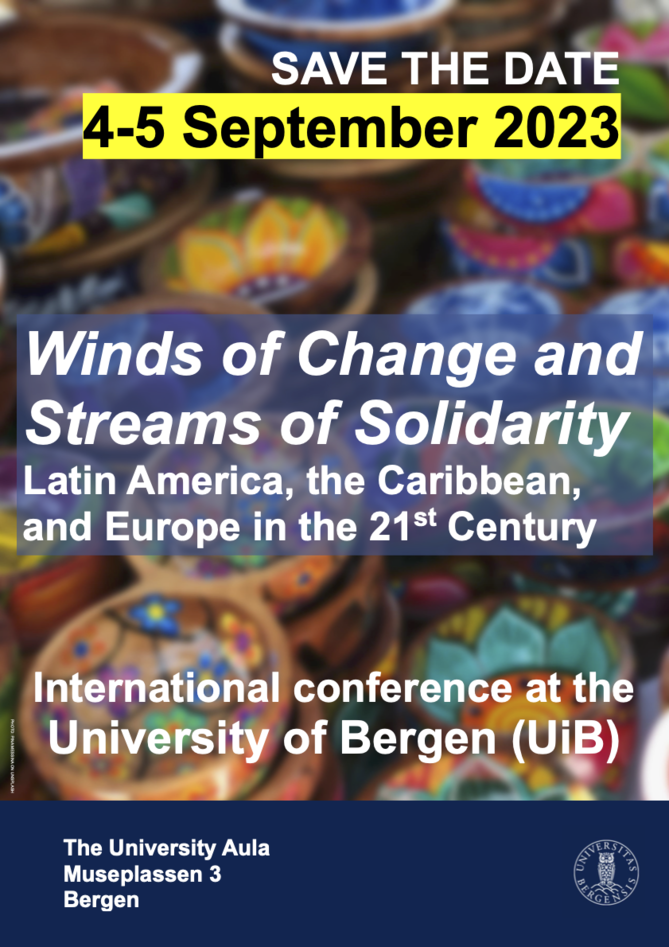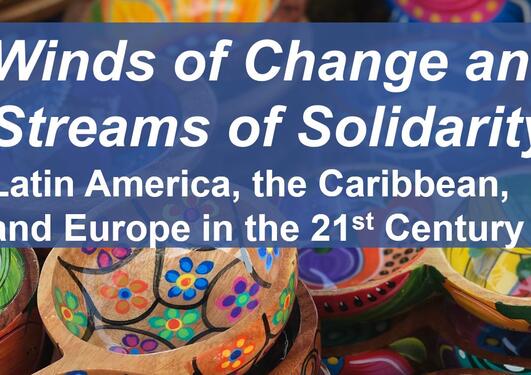UiB LAC CONFERENCE 2023
Q&A: Leiv Marsteintredet
Political scientist Leiv Marsteintredet points at how democracy in Latin America and Europe are linked, bemoans Norwegians who romanticise revolutions and urges everyone to visit Santo Domingo in the Dominican Republic, both for its colonial history but not the least to grab a cold beer in front of Museo de Casas Reales.

Photo:
UiB
Main content
Updated: 25.08.2023 (First published: 18.08.2023)
- In this weekly series we interview the members of the programme committee for the conference “Winds of Change and Streams of Solidarity: Latin America, the Caribbean, and Europe in the 21st Century”. This is the third interview in the series.
- Why should Norwegians/Europeans care about what’s going on in Latin America and the Caribbean?
“I think few people know that the region's democratic history goes more than 200 years back in time. It is both linked with decolonisation in Latin America, in other words the desire to break away from European colonisers, and with the ideas of liberty and democracy that spread across Europe at the time. At least since then, Latin America's struggles with democracy have been linked to Europe. At a time when many observers argue that democracy is under pressure both inside and outside of Europe, what happens with democracy in Latin America is very relevant for our own democracies.”
- What can students learn from visiting Latin America or the Caribbean?
“The obvious part is that you learn a language. The best way of learning a language is of course by travelling. I believe, also, that any Norwegian travelling across Latin America would get struck by the variations across countries, and inside countries when it comes to nature, culture, food, art, and history. I believe that in some aspects Norway would be more similar to Uruguay than Uruguay to for instance Guatemala. In my experience, Norwegians often tend to think of Latin America as relatively monolithic and are ignorant of the huge differences across this vast region.”
- What is your favourite place in Latin America and the Caribbean, and why?
“I like cities and I am interested in history. Therefore, I often tend to find favourite spots in cities that used to be colonial centres in Latin America. If I must pick one, I'd say the colonial city of Santo Domingo (Dominican Republic), which was the first Spanish colonial headquarter in the New World. There's a particular spot in front of Museo de Casas Reales (Museum of the Royal Houses) from the 16ht century, where you can stand on an ancient Spanish canon and get a beautiful view of the River Ozama and the ocean, the first street of Santo Domingo (La calle de las Damas), the palace of Diego Columbus (the brother of Christopher), and the Plaza de España (Spanish Square). It is a spot that brings back personal memories from the 1990s, but that also gives you a view of so much history. It is also a great spot for a cold beer.”
- If you should recommend one book from/on Latin America and the Caribbean, which would that be?
“Impossible to recommend one. But Adiós Muchachos by Sergio Ramírez is a very strong and interesting memoir of a Nicaraguan revolutionary and a very (self) critical analysis of the Nicaraguan Sandinista revolution. Again, far away in Norway or in Europe, many often romanticise revolutions, Ramírez's book is a very strong, and necessary, antidote of such romanticism. The book is also interesting from a Scandinavian perspective since Ramírez worked in the Sandinista government throughout the 1980s and met many Norwegian and Swedish politicians would frequently visit the country to support or follow the revolution.”
- And if you should recommend one film or movie from/on Latin America and the Caribbean, and why?
“Kamchatka (Argentina, 2002) is set in Argentina after the miliary coup in 1974 and is about two parents and a child and how they have to flee their normal life to avoid persecution. It is a very beautiful and rather slow movie that deals with the violent consequences of military rule. The movie itself, however, is not violent and the military regime is only in the background, letting the main characters drive the movie in their struggle to survive.”
- Who is your favourite music artist from Latin America or the Caribbean?
“I normally like rock music, but for Latin America and the Caribbean I'd have to go with the Dominican Juan Luis Guerra. Guerra uses and reinvents the traditional and popular music styles of the Caribbean (Bachata, Merengue, Salsa) in an extraordinary way that has gained him popularity way beyond LAC. His texts are poetic, humoristic, and often slightly political, especially when it describes the daily struggles of the Dominican people. He has taken traditional tunes and music, reinvented it and made it popular among new generations.”
MORE INFORMATION ABOUT THE CONFERENCE


